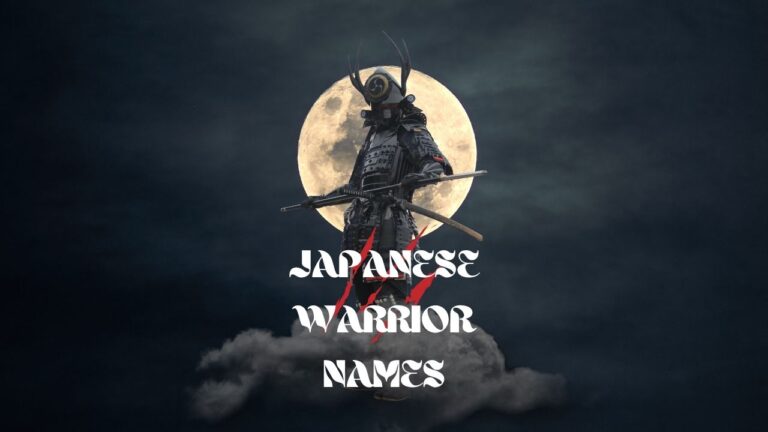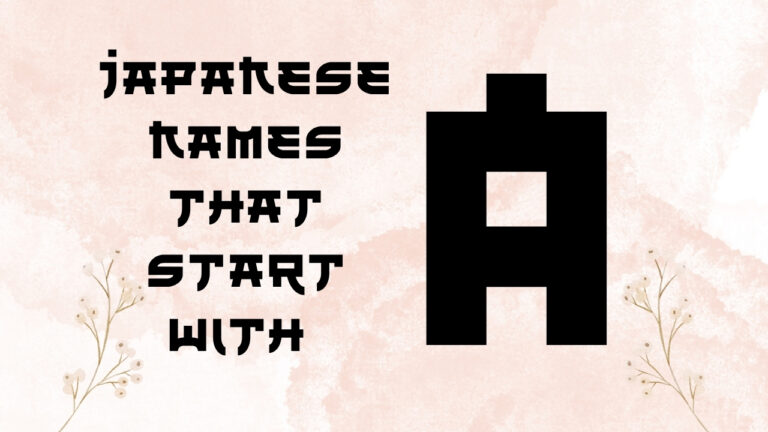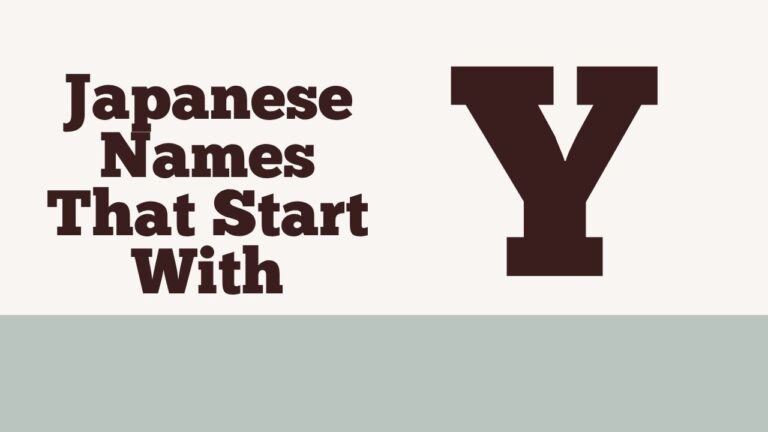200+ japanese name for cat
Finding the perfect Japanese name for your cat can be a fun way to give your furry friend a name that sounds beautiful and meaningful. Whether you are looking for Japanese names for cats female that reflect elegance, or Japanese names for cats male that sound strong and stylish, there are plenty of lovely options to explore.
Many pet owners also love choosing unique Japanese names for cats female to make their pet stand out. If you prefer something playful, there are plenty of cute Japanese cat names that are easy to pronounce. You can also pick from common cat names in Japan that are popular among cat lovers across the country.
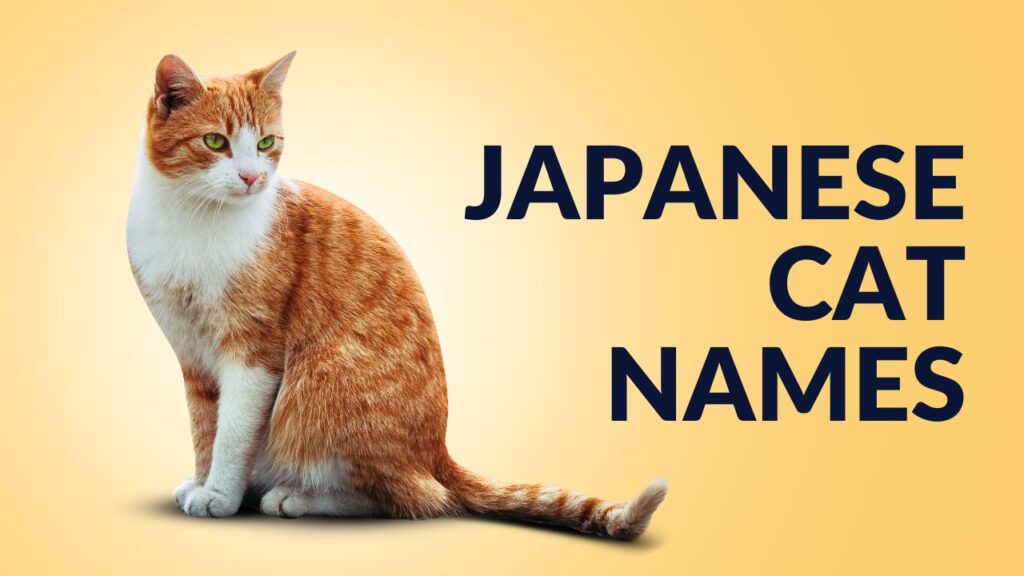
Also read:125+ japanese samurai names
Female Japanese names for cats
- Hana (花) – Meaning flower
- Yuki (雪) – Meaning snow
- Sakura (桜) – Meaning cherry blossom
- Momo (桃) – Meaning peach
- Kiko (希子) – Meaning hopeful child
- Riko (莉子) – Meaning jasmine child
- Chika (千花) – Meaning thousand flowers
- Aiko (愛子) – Meaning beloved child
- Nana (菜々) – Meaning greens, vegetables (often a cute, simple name)
- Miyu (美優) – Meaning beautiful kindness
- Kohana (小花) – Meaning little flower
- Saki (咲) – Meaning blossom
- Rin (凛) – Meaning dignified, cold beauty
- Hikari (光) – Meaning light
- Noa (乃愛) – Meaning from love
- Mei (芽衣) – Meaning sprouting garment or budding clothes
- Yua (結愛) – Meaning binding love
- Tama (たま) – Traditional cat name meaning ball (popular for its cuteness)
- Mika (美香) – Meaning beautiful fragrance
- Kumi (久美) – Meaning long-lasting beauty
- Emi (恵美) – Meaning blessed beauty
- Shiori (詩織) – Meaning bookmark or poetry weave
- Suzu (鈴) – Meaning bell (often associated with playful pets)
- Hime (姫) – Meaning princess
- Rika (梨花) – Meaning pear blossom
Male Japanese names for cats
- Haruto (陽翔) – Meaning sun flying
- Ren (蓮) – Meaning lotus
- Kaito (海翔) – Meaning ocean flying
- Souta (颯太) – Meaning sudden wind, great
- Daiki (大輝) – Meaning great radiance
- Riku (陸) – Meaning land
- Shun (駿) – Meaning fast, talented
- Takumi (匠) – Meaning master, artisan
- Itsuki (樹) – Meaning tree
- Ryota (涼太) – Meaning cool, great
- Kouki (光希) – Meaning light hope
- Sora (空) – Meaning sky
- Tsubasa (翼) – Meaning wings
- Hinata (陽向) – Meaning sunny place
- Reo (怜央) – Meaning wise center
- Shoma (翔真) – Meaning true flyer
- Yuuto (優翔) – Meaning gentle flight
- Hikaru (光) – Meaning light
- Taichi (太一) – Meaning great first
- Masaki (正樹) – Meaning righteous tree
- Keita (慶太) – Meaning happy, great
- Naoki (直樹) – Meaning honest tree
- Rento (蓮翔) – Meaning lotus flight
- Fumito (文人) – Meaning scholarly person
- Yamato (大和) – Meaning great harmony
Unique Japanese names for cats
- Aoiro (青色) – Meaning blue color
- Kurohane (黒羽) – Meaning black feather
- Shinku (真紅) – Meaning deep crimson
- Hoshiko (星子) – Meaning child of the stars
- Gin (銀) – Meaning silver
- Akari (灯り) – Meaning light, lantern glow
- Kohaku (琥珀) – Meaning amber
- Sango (珊瑚) – Meaning coral
- Raika (雷花) – Meaning thunder flower
- Tsukasa (司) – Meaning leader, authority
- Midori (翠) – Meaning green, jade color
- Kazane (風音) – Meaning sound of wind
- Shiranui (不知火) – Meaning mysterious fire on the sea
- Hisui (翡翠) – Meaning jade
- Raito (雷翔) – Meaning thunder flight
- Tsukimi (月見) – Meaning moon viewing
- Seina (星奈) – Meaning star and hope
- Oboro (朧) – Meaning hazy, faint
- Hinode (日の出) – Meaning sunrise
- Suzuran (鈴蘭) – Meaning lily of the valley
- Engetsu (円月) – Meaning full moon
- Byakko (白虎) – Meaning white tiger (mythical guardian)
- Yoru (夜) – Meaning night
- Umi (海) – Meaning sea
- Hibiki (響) – Meaning echo, sound
Common Japanese names for cats
- Mikan (みかん) – Meaning mandarin orange
- Shiro (しろ) – Meaning white
- Kuro (くろ) – Meaning black
- Tora (とら) – Meaning tiger
- Sabu (さぶ) – A classic nickname-style cat name
- Pochi (ぽち) – Traditional name often used for pets
- Chibi (ちび) – Meaning small or tiny
- Mii (みい) – Cute and simple sound often used for cats
- Koko (ここ) – Short and easy, sounds playful
- Fuku (福) – Meaning luck
- Tamao (たまお) – Variation of Tama, traditional pet name
- Maru (まる) – Meaning circle, often used for round, chubby cats
- Kinako (きなこ) – Meaning soybean flour, popular for light-colored pets
- Hachi (はち) – Meaning eight, also famous from the dog story, used for pets
- Sorao (そらお) – Variation of Sora, meaning sky boy
- Momoji (ももじ) – Meaning little peach
- Purin (ぷりん) – Meaning pudding, very popular for sweet pets
- Yuki-chan (ゆきちゃん) – Meaning little snow, used for fluffy white cats
- Koma (こま) – Meaning spinning top, common for playful cats
- Ran (らん) – Meaning orchid
- Goma (ごま) – Meaning sesame, for speckled or gray cats
- Shiba (しば) – Inspired by Shiba Inu dogs, but also used for cats
- Bon (ぼん) – Cute and simple, often for round or lazy cats
- Niko (にこ) – Meaning smile
- Piyo (ぴよ) – Meaning chirp, often used affectionately for small pets
Cute Japanese names for cats
- Puchi (ぷち) – Meaning tiny
- Mofuko (もふこ) – Meaning fluffy child
- Rara (らら) – A playful, musical-sounding name
- Choco (ちょこ) – Meaning chocolate, great for brown cats
- Poko (ぽこ) – Cute, bouncy-sounding name
- Mimi (みみ) – Meaning ears, cute for alert cats
- Lulu (るる) – A sweet, rhythmic name
- Fuwari (ふわり) – Meaning light and fluffy
- Pyon (ぴょん) – Meaning hop, good for playful cats
- Koro (ころ) – Meaning round, ideal for plump or cuddly cats
- Mochi (もち) – Meaning rice cake, soft and squishy
- Nini (にに) – A repetitive, endearing sound
- Pipin (ぴぴん) – Fun, high-energy name
- Muu (むう) – Soft, sleepy sound, perfect for lazy cats
- Bubu (ぶぶ) – Playful, sounds like little purring noises
- Toto (とと) – Meaning small child
- Kiki (きき) – Meaning crisis but often used as a cute, simple name
- Fuwa (ふわ) – Meaning fluffy
- Riko-chan (りこちゃん) – A sweet nickname variation of Riko
- Potechi (ぽてち) – Meaning potato chips, a fun snack-inspired name
- Purin-chan (ぷりんちゃん) – Diminutive of pudding, very sweet-sounding
- Chacha (ちゃちゃ) – Meaning tea-tea, often used as a cute nickname
- Ponzu (ぽんず) – Meaning citrus sauce, cute food-inspired name
- Tonton (とんとん) – Sound of light tapping, good for curious cats
- Mikan-chan (みかんちゃん) – Sweetened version of mandarin orange, adorable for small pets
Nature-inspired Japanese names for cats
- Hayate (疾風) – Meaning swift wind
- Sangoha (珊瑚葉) – Meaning coral leaf
- Kazuki (一樹) – Meaning harmony tree
- Hinagi (雛木) – Meaning young tree
- Minato (港) – Meaning harbor or port
- Ame (雨) – Meaning rain
- Daichi (大地) – Meaning earth, land
- Seiji (清司) – Meaning pure ruler, inspired by nature’s purity
- Arashi (嵐) – Meaning storm
- Kawa (川) – Meaning river
- Natsuki (夏希) – Meaning summer hope
- Hoshimi (星美) – Meaning beautiful star
- Inaho (稲穂) – Meaning rice plant
- Yuzuki (柚月) – Meaning citrus moon
- Kazan (火山) – Meaning volcano
- Namiki (並木) – Meaning tree-lined street
- Iwao (岩男) – Meaning rock man
- Misora (美空) – Meaning beautiful sky
- Sumire (菫) – Meaning violet flower
- Kohane (小羽) – Meaning small feather
- Tsukikage (月影) – Meaning moonlight shadow
- Akikaze (秋風) – Meaning autumn wind
- Himawari (向日葵) – Meaning sunflower
- Reika (冷華) – Meaning cold flower, inspired by winter nature
- Yamabuki (山吹) – Meaning Japanese yellow rose
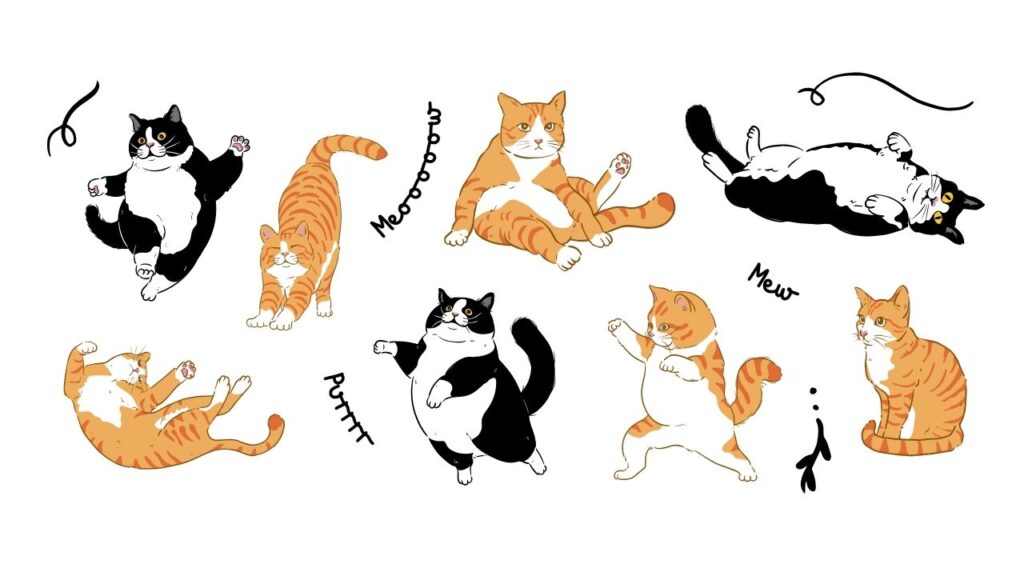
traditional Japanese names for cats
- Genji (源氏) – Famous historical name, Genji clan
- Okami (おかみ) – Meaning wolf or mistress, traditional sounding
- Sadamasa (貞正) – Meaning faithful and just
- Oharu (お春) – Meaning spring, old-fashioned female name
- Taketora (竹虎) – Meaning bamboo tiger
- Chōbei (長兵衛) – A classic Edo-era male name
- Sae (さえ) – Meaning pure or refined
- Hachirō (八郎) – Meaning eighth son, typical of older naming traditions
- Oume (お梅) – Meaning plum blossom, traditional feminine name
- Kichiro (吉郎) – Meaning lucky son
- Otama (お玉) – Classic female name from old Japan
- Heihachi (平八) – Meaning peaceful eighth, old male name
- Osen (お仙) – Meaning hermit or fairy, traditional girl’s name
- Tōbei (藤兵衛) – Meaning wisteria soldier, common old masculine name
- Ofuku (お福) – Meaning good fortune, often used for pets in tradition
- Gennai (源内) – Historical name linked to inventors and scholars
- Tatsuya (達也) – Meaning accomplished one, common in older generations
- Onatsu (お夏) – Meaning summer, traditional girl’s name
- Manpei (万平) – Meaning ten thousand peace, male traditional name
- Oryo (お龍) – Meaning dragon, female name with strength
- Jirōmaru (次郎丸) – Meaning second son circle, masculine traditional name
- Oito (お糸) – Meaning thread, delicate feminine name
- Kuranosuke (蔵之介) – Classic samurai-style name
- Oshizu (お静) – Meaning quiet, old-fashioned girl’s name
- Katsunosuke (勝之助) – Meaning victory helper, strong traditional male name
popular Japanese names for cats
- Suzu-chan (すずちゃん) – Meaning little bell
- Rikuo (陸王) – Meaning king of the land
- Miruku (みるく) – Meaning milk, very popular for white or cream cats
- Kokoa (ここあ) – Meaning cocoa, cute for brown or sweet-natured cats
- Leo (れお) – Inspired by lion, common and popular
- Anzu (あんず) – Meaning apricot, lovely for soft-colored cats
- Tsubame (つばめ) – Meaning swallow bird, elegant name
- Fukuo (福男) – Meaning lucky man
- Sakurao (桜男) – Meaning cherry blossom boy
- Ichigo (いちご) – Meaning strawberry, perfect for sweet or playful cats
- Hinako (ひなこ) – Meaning little chick, common and adorable
- Shima (しま) – Meaning stripe, ideal for striped cats
- Reina (れいな) – Meaning wise, graceful, popular girl’s name
- Chibita (ちびた) – Meaning tiny one, for small or young cats
- Kouta (こうた) – Meaning great happiness, popular male name
- Rinrin (りんりん) – Cute, ringing sound, often used for energetic pets
- Yume (ゆめ) – Meaning dream, soft and popular for gentle cats
- Peko (ぺこ) – Playful, popular, inspired by mascot characters
- Kurumi (くるみ) – Meaning walnut, lovely for brown cats
- Soutarou (そうたろう) – Meaning great son, traditional yet popular male name
- Luna (るな) – Meaning moon, popular and easy to pronounce
- Momiji (もみじ) – Meaning maple leaf, popular, especially in autumn
- Ramu (らむ) – Meaning lamb or cute sound name
- Tsubaki (つばき) – Meaning camellia flower, elegant choice
- Kanta (かんた) – Meaning simple, honest, very common and popular
Japanese names for black cats
- Kokutan (黒炭) – Meaning black charcoal
- Yami (闇) – Meaning darkness
- Sumirei (墨麗) – Meaning beautiful ink
- Kuron (クロン) – Cute, modern-sounding version of black
- Kage (影) – Meaning shadow
- Kurota (黒太) – Meaning big black one
- Ankoku (暗黒) – Meaning pitch dark
- Kokuyō (黒曜) – Short for obsidian, the volcanic black stone
- Kurumiya (胡桃夜) – Meaning walnut night, creative black-themed name
- Kurobei (黒兵衛) – Classic, traditional-style black guard name
- Sumizome (墨染め) – Meaning ink-dyed
- Yorushika (夜鹿) – Meaning night deer
- Kuronari (黒成) – Meaning becomes black
- Raven (レイヴン) – Popular modern name for black pets, written in katakana
- Tsukiyo (月夜) – Meaning moonlit night
- Kurousa (黒兎) – Meaning black rabbit, playful irony for a cat
- Yoruko (夜子) – Meaning child of the night
- Kuroshi (黒志) – Meaning black will
- Sumiguro (墨黒) – Meaning ink black
- Mayonaka (真夜中) – Meaning midnight
- Kuromaru (黒丸) – Meaning black circle, great for round or plump black cats
- Yamiyo (闇夜) – Meaning dark night
- Kurone (黒音) – Meaning black sound
- Yorutsuki (夜月) – Meaning night moon
- Kurozan (黒山) – Meaning black mountain
Japanese names for white cats
- Shiratori (白鳥) – Meaning white bird or swan
- Hakuhō (白鳳) – Meaning white phoenix
- Shirasagi (白鷺) – Meaning white heron
- Hakuba (白馬) – Meaning white horse
- Byakuren (白蓮) – Meaning white lotus
- Shiraume (白梅) – Meaning white plum blossom
- Byakuya (白夜) – Meaning midnight sun, white night
- Shirage (白毛) – Meaning white fur
- Hakuchō (白蝶) – Meaning white butterfly
- Byakko (白狐) – Meaning white fox
- Shirabe (白音) – Meaning white sound
- Byakugan (白眼) – Meaning white eyes, often mystical
- Shiroishi (白石) – Meaning white stone
- Hakusetsu (白雪) – Meaning white snow, poetic version
- Shiran (白蘭) – Meaning white orchid
- Hakujin (白人) – Meaning white person, used for pale pets
- Shiratsuyu (白露) – Meaning white dew
- Hakurui (白類) – Meaning white kind/species
- Shirayume (白夢) – Meaning white dream
- Byakkō (白光) – Meaning white light
- Shirokishi (白騎士) – Meaning white knight
- Shirakumo (白雲) – Meaning white cloud
- Hakusen (白線) – Meaning white line
- Shiraha (白刃) – Meaning white blade, elegant and sharp
- Shirakiba (白牙) – Meaning white fang
conclusion
Choosing the right name for your cat is a special moment that reflects both their personality and your love for them. Japanese names offer a beautiful mix of tradition, nature, and creativity, making them perfect for cats of all colors and temperaments.
Whether you prefer something cute, meaningful, or inspired by nature, there’s a wide range of options to help your furry friend stand out. Take your time, observe your cat’s unique traits, and pick a name that feels just right for them. A well-chosen name not only adds charm but also deepens the bond between you and your pet.
FAQs
1. Can I use a Japanese name for my cat even if I don’t speak Japanese?
Yes, many people around the world choose Japanese names for their pets because they sound beautiful and have unique meanings, regardless of language background.
2. Are Japanese cat names unisex, or do they have specific gender associations?
Some Japanese names are gender-neutral, while others are more traditionally used for male or female pets. However, many modern cat owners choose names based on sound or meaning rather than gender rules.
3. How do I make sure I’m pronouncing a Japanese cat name correctly?
You can listen to online pronunciation guides, ask native speakers, or break the name into simple syllables. Japanese pronunciation is often straightforward once you hear it a few times.
4. Is it common to give cats traditional or historical Japanese names?
Yes, many people love using historical, cultural, or even samurai-inspired names for their cats to reflect heritage or add a unique twist.
5. Can I mix Japanese and other languages for a creative cat name?
Absolutely. Many pet owners combine Japanese words with names from other languages to create something fun and personal for their cat.
6. Are certain Japanese names considered lucky for cats?
Yes, some names are believed to bring good luck, happiness, or protection based on their meanings, such as names related to nature, fortune, or positive symbols.
7. How do Japanese people traditionally choose names for their cats?
In Japan, names are often chosen based on the cat’s appearance, personality, or characteristics like fur color, size, or behavior, with a preference for cute or meaningful sounds.



